Difference Between Public Cloud and Private Cloud: An In-Depth Comparison
Public Cloud Computing:
Services and infrastructure in the public cloud are accessible via the internet and hosted by cloud providers.
These providers deliver a range of computing resources, like virtual servers and storage, through a shared system to various clients.
For example, large-scale services such as Amazon Web Services or Google Cloud Platform operate in this manner, where users benefit from a massive pool of resources and only pay for what they use.
Advantages of Public Clouds:
- Scalability and flexibility, with resources that can be adjusted on demand
- Cost-effectiveness, due to a pay-as-you-go pricing model
- Widespread accessibility, allowing for remote access from any location
- Dependable and resilient, often supported by extensive, geographically distributed data centers
Limitations of Public Clouds:
- Potential security risks, amplified by the widespread accessibility of services
- Less control for users over the storage and handling of their data
- Challenging to comply with certain privacy and regulatory standards
Private Cloud Computing:
Contrary to its public counterpart, a private cloud caters exclusively to the needs of an individual entity via a secured network.
Offering dedicated servers and infrastructure, a private cloud—like an internally hosted private cloud or an on-premises data center—provides a company with more control and privacy for their sensitive operations.
Advantages of Private Clouds:
- Enhanced control over the computing environment, allowing for tailored setups
- Superior security, as access is restricted to authorized personnel
- Greater ease in fulfilling specific compliance and regulatory demands
- Customization prospects for performance and service optimization
Limitations of Private Clouds:
- Higher costs due to specialized infrastructure investment and maintenance
- More complex maintenance and updates, handled internally
- Potentially less scalability when compared to the vast public cloud resources
Commonalities of Public and Private Clouds:
Both public and private clouds utilize technology that allows for efficient scaling and resource management.
- Virtualization enables efficient hardware use by creating virtual instances.
- Automation in both manages resources, enhancing operational smoothness.
- High availability is a priority, with redundancy to ensure service continuity.
- Scalability is afforded to both, permitting resource adjustment as necessary.
- Resource Pooling allows for shared use of computing services among users or tasks.
- Service-oriented architecture is employed, where access to shared services is standardized.
Distinct Variations: Public vs Private Clouds:
Accessibility:
Public Cloud: Open to general public over the internet; multiple customers
Private Cloud: Restricted to a specific organization via a private network; single customer
Tenancy:
Public Cloud: Multi-tenant; isolated data sharing as per protocols
Private Cloud: Single tenant; exclusive data storage for one enterprise
Service Breadth:
Public Cloud: Diverse and versatile to cater to varied needs. Flexibility not always optimal.
Private Cloud: Tailored services and hardware to cater to enterprise-specific needs. Very flexible.
Hosting:
Public Cloud: Located offsite at the service provider's facility.
Private Cloud: Can either be hosted internally within the company's private infrastructure, by a Managed Virtual Private Cloud Provider (for example: Orillia Computer).
Examples of Private and Public Cloud Providers
Private clouds are operated solely for a single organization.
They offer greater control over data and are often used by businesses with strict compliance needs. Examples include VMware and OpenStack.
Some specialized service providers, (like Orillia Computer), that provide and manage Virtual Private Cloud Services offering the advantages of a Private cloud, but without the organization having to worry about managing any of the the back-end technology!
In contrast, public clouds are managed by third-party providers and deliver services over the internet to multiple organizations. Examples of this are Amazon Web Services (AWS), Microsoft Azure, and Google Cloud Platform.
Security in Public vs. Private Clouds
Private Cloud:
- Controlled access
- Customizable security protocols
- Dedicated resources
Public Cloud:
- Multi-tenancy concerns
- Standardized security measures
- Dependent on provider's security policies
Private Cloud vs. Community Cloud
A private cloud provides services exclusively within one organization, while a community cloud serves a specific community of users with common interests or compliance requirements, allowing for resource sharing among multiple organizations.
Public Cloud vs. Private Cloud Costs
Public Cloud:
- Pay-as-you-go models
- Lower upfront costs
- Economies of scale
Private Cloud:
- Higher capital expenditure
- Ongoing maintenance costs
- Customization can increase expenses, offset by using Virtual Private Cloud providers (like Orillia Computer).
Compliance in Cloud Environments
Private Cloud:
- Easier to implement specific regulatory controls
- More straightforward compliance auditing
Public Cloud:
- Compliance must align with shared infrastructure
- Providers often offer compliance certifications
Each of these two service models in cloud computing offer a varying balance of control, management, and ease of use.
Understanding these dynamics is crucial for adopting the model that best suits a business's specific needs for each specific task.
The cloud experts here at
Orillia Computer can help you choose the right mix of cloud services for your business, as well as providing all necessary development, deployment and ongoing support needs!
Building better solutions for better business®




